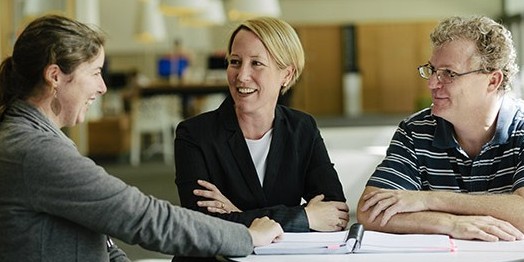I am accredited to practice in both the facilitative and transformative models of mediation. As a mediator, I see my role as providing skilled support for parties in conflict to have constructive conversations and to make informed choices about the future.
What is mediation?
Mediation is a process in which an independent third party (the mediator) assists two people in conflict to discuss their concerns and to make informed decisions about how to manage the situation in the future. The mediator does not provide advice or make decisions for the parties. The process is voluntary, and the individuals concerned choose whether or not to participate and also whether or not to reach any agreement during the process.
Confidentiality
Importantly, any discussions that I have with people involved in the mediation are confidential from my perspective. In other words I will not disclose to anyone what they tell me, or what they talk about in my presence, unless everyone agrees that I am permitted to disclose the information, or I am required to by law. What the individuals concerned choose to disclose to others is entirely up to them, although they may choose to make certain commitments to each other about this before the mediation.
Pre-mediation individual meetings
My normal practice is to meet with the manager/employer who has referred the parties to mediation (where applicable) in order to discuss the reasons for the referral and any needs of the organisation in relation to reporting or documentation.
I also meet with each party individually for about 2 hours (the time can vary according to the complexity of the issues). These individual meetings are very important, as they give me an opportunity to assist the individuals to prepare for the mediation. During this time I assist the individual to become clear about what their particular needs and concerns are, what their options are in relation to the situation, and what the likely consequences of their choices are for them, the other person concerned, and anyone else involved (e.g. their family, workmates and/or employer). I also work with the individual to prepare for a conversation with the other person. I assist them to think about what they need to communicate, what information they need/questions they would like to ask, and how different ways of approaching the conversation might play out during the mediation. I also direct the individual to think explicitly about what they might gain/lose from having the conversation, and what the consequences might be if they choose not to participate in mediation. Any alternatives to mediation are discussed and evaluated.
Ideally, if both parties are then willing to participate in a joint mediation, we schedule this for about a week after individual conversations. This gives each person time to think more about what we discussed in the individual meetings and to prepare for the conversation with the other person.
Agreement to mediate
Those participating in mediation (and their employer if they are referred to mediation) must sign an agreement to mediate prior to any joint mediation session. This ensures that everyone is clear about what will happen and each person’s responsibilities in the process.
Joint mediation session/s
A joint mediation session could take anywhere between an hour and a whole day, depending on the complexity of the issues. On average, most workplace mediations take 2-4 hours, but there are some that are shorter or longer. Some situations require a number of joint meetings over a period of weeks.
Follow up sessions
Often, parties choose to participate in an optional follow up session some time after the joint mediation session (usually 3-4 weeks later). The purpose of this session is to check in with the parties about how things have been going since the mediation, and to discuss any problems that might have arisen since then, particularly in the implementation of any agreement reached during the mediation.
Outcomes and benefits
There are a range of potential outcomes and benefits of mediation. In many cases, parties reach an agreement about some or all of the aspects of the conflict. In other cases, while the parties may not reach an agreement as such, they may leave the mediation session with a better understanding of their own and the other person’s needs and concerns, and a greater willingness to try to respect each other’s differences. In some cases, parties realize through mediation that their differences are irreconcilable, and that they need to take steps to remove themselves from the situation in order to avoid further conflict (e.g. a party may decide that their best option in the circumstances is to resign). The main objective of the mediator, irrespective of which choice the parties make, is to support them to make their choice based on a good understanding of the situation and to manage their future actions in a constructive way.

